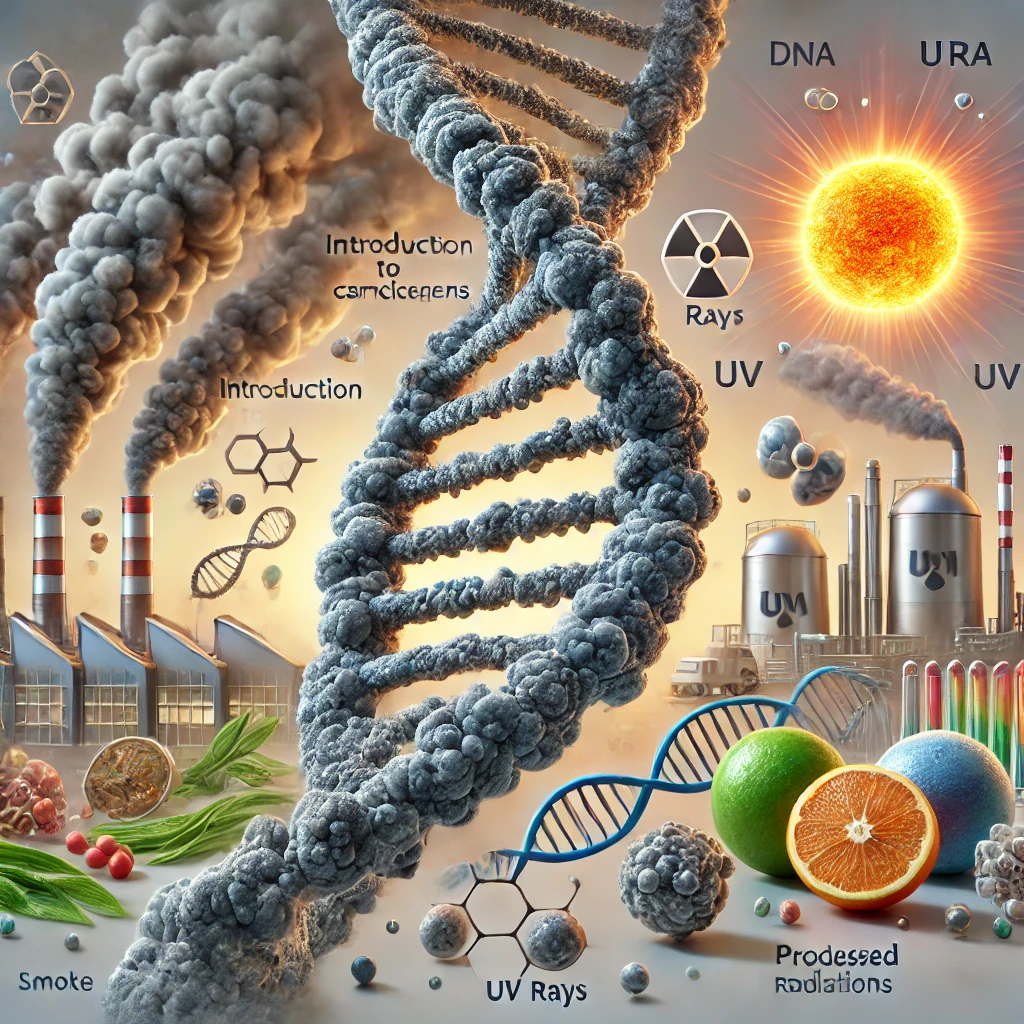What Are Carcinogens, What Do They Cause, and Why Should We Avoid Them?
Every day, we are exposed to countless substances and influences in our environment. While many are harmless, some pose significant health risks, none more concerning than carcinogens. These agents, linked to cancer development, are often invisible dangers hiding in plain sight. Understanding what carcinogens are, what they do to the body, and why it’s critical to avoid them is a vital step toward living a healthier life.
What Are Carcinogens?
A carcinogen is any substance, agent, or form of exposure that can lead to cancer. These agents don’t always directly cause cancer but increase the likelihood of its development. Carcinogens may:
- Damage DNA, the genetic blueprint of cells.
- Interfere with normal cellular processes.
- Promote chronic inflammation or oxidative stress.
Carcinogens can be natural (e.g., ultraviolet radiation, certain molds) or man-made (e.g., industrial chemicals, tobacco smoke). They’re categorized into three main types:
- Chemical Carcinogens: Found in tobacco, pesticides, processed foods, and household products.
- Physical Carcinogens: Include UV radiation, ionizing radiation, and asbestos fibers.
- Biological Carcinogens: Certain viruses, bacteria, and parasites (e.g., HPV, Helicobacter pylori).
What Do Carcinogens Cause?
The primary effect of carcinogens is the increased risk of cancer. However, their impact extends far beyond this:
1. Cellular Damage
Carcinogens can directly damage the DNA in cells, leading to mutations. These mutations disrupt normal cellular functions, causing cells to grow uncontrollably, which may eventually result in tumor formation.
2. Chronic Diseases
- Long-term exposure to carcinogens like tobacco smoke can lead to diseases such as chronic obstructive pulmonary disease (COPD) and cardiovascular issues.
- Alcohol, a known carcinogen, contributes to liver damage and cirrhosis.
3. Systemic Impact
Carcinogens often promote chronic inflammation and oxidative stress, which weaken the immune system, making it harder for the body to fight not just cancer but other illnesses as well.
4. Cancer Development
Cancer caused by carcinogens often takes years or decades to develop, making early detection challenging. Examples include:
- Lung Cancer: Caused by tobacco smoke and asbestos exposure.
- Skin Cancer: Resulting from prolonged UV radiation.
- Liver Cancer: Associated with alcohol and certain viruses like hepatitis B and C.
Why Should We Avoid Carcinogens?
1. Cancer Is Preventable
Experts estimate that up to 50% of cancers are preventable through lifestyle changes, including avoiding carcinogen exposure. Reducing exposure can significantly decrease the likelihood of developing cancer.
2. Long-Term Health Effects
Even if carcinogens don’t cause immediate harm, their cumulative effects can be devastating over time. For instance:
- Persistent exposure to air pollution has been linked to respiratory and cardiovascular diseases.
- Frequent consumption of processed foods increases risks of obesity-related cancers.
3. Protecting Future Generations
Carcinogens in the environment can have long-term impacts on public health, affecting children and future generations. For example, exposure to pesticides in childhood increases cancer risks later in life.
4. Advocacy for Cleaner Environments
By avoiding carcinogens and advocating for safer alternatives, individuals can push industries and governments toward stricter regulations and healthier practices.
Common Sources of Carcinogens
Carcinogens are present in various aspects of daily life. Recognizing these sources is the first step toward minimizing exposure:
- Food: Processed meats, overcooked or charred foods, and pesticide-laden produce.
- Household Products: Cleaning supplies, air fresheners, and non-stick cookware.
- Environment: Air pollution, industrial emissions, and contaminated water.
- Lifestyle Choices: Smoking, excessive alcohol consumption, and prolonged sun exposure.
How to Minimize Exposure to Carcinogens
1. Choose Safer Products
- Opt for non-toxic cleaning supplies and personal care products labeled “paraben-free” or “phthalate-free.”
- Use glass, stainless steel, or ceramic cookware instead of non-stick options.
2. Improve Diet
- Limit processed meats and fried or charred foods.
- Increase intake of fresh, organic fruits and vegetables.
- Drink filtered water to avoid contaminants like lead and arsenic.
3. Reduce Environmental Risks
- Avoid smoking and secondhand smoke.
- Use air purifiers and houseplants to improve indoor air quality.
Understanding the Bigger Picture
Carcinogens are an undeniable part of modern life, but with awareness and action, their impact can be minimized. By making informed choices and advocating for healthier environments, we can protect ourselves and future generations from the silent but potent threat of carcinogens.
In the end, avoiding carcinogens isn’t just about preventing cancer; it’s about embracing a lifestyle that prioritizes health, well-being, and longevity. Together, we can take steps toward a healthier, carcinogen-free future.
for a deeper dive into Carcinogens click here to follow the course!

